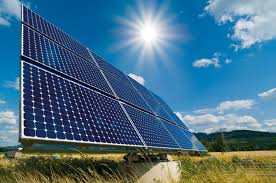Federal Government to Deploy Solar Hybrid Systems in 37 Universities
F
The Federal Government has announced plans to provide two megawatts of clean, renewable energy to each of the 37 federal universities across Nigeria, including the Federal Capital Territory (FCT).
According to the correspondent, the initiative will harness sources like hydro, solar, and wind power to generate electricity sustainably.
Dr. Mustapha Abdullahi, Director-General of the Electricity Company of Nigeria (ECN), revealed this at a press conference held in Abuja on Friday.
He added that the government will also install two megawatts of solar hybrid systems in each of the 37 tertiary hospitals across the 36 states and the FCT.
Abdullahi explained that the project is part of a ₦10 billion presidential solar power initiative launched by President Bola Tinubu’s administration.
“The project is in fulfillment of Tinubu’s Presidential campaign promise to provide stable electricity supply in the country,” he said.
He further described the initiative as “a strategic and bold step towards national aspiration and fundamental investment in the future of Nigeria’s energy sector.”
“It is also a strategic step towards sustainability, universal access, self-reliance and a leading role in the power supply equation,” Abdullahi added.
The DG noted that before the current administration, federal institutions in Abuja — including the Presidential Villa — owed the Abuja Electricity Distribution Company (AEDC) ₦47.1 billion.
“Transitioning to alternative and sustainable energy sources will significantly reduce burden and allow government institutions to become models of efficiency by cutting costs and enhancing reliable and sustainable governance,” he explained.
“The move clearly intends to insulate Nigerians from incessant high electricity bills, which underscores the President’s commitment to cutting costs and reducing spending across public and private facilities,” Abdullahi said.
He added that the solar initiative sends a strong message to citizens, investors, and global partners about Nigeria’s readiness to take control of its energy future.
“This initiative opens doors to thousands of jobs in solar panel manufacturing; systems design, installation, operation and maintenance,” he said.
“It fosters innovation among indigenous engineers, entrepreneurs, and young graduates seeking opportunities in a global green economy.”
“It reduces pressure on our overstretched national grid, cuts long-term costs and puts us on a path to energy equity,” Abdullahi noted.
He emphasised that the program would help establish decentralised renewable power systems to serve rural and underserved communities.
Abdullahi urged citizens to focus on the long-term benefits, describing the project as “a long-term energy vision.”
(NAN)


